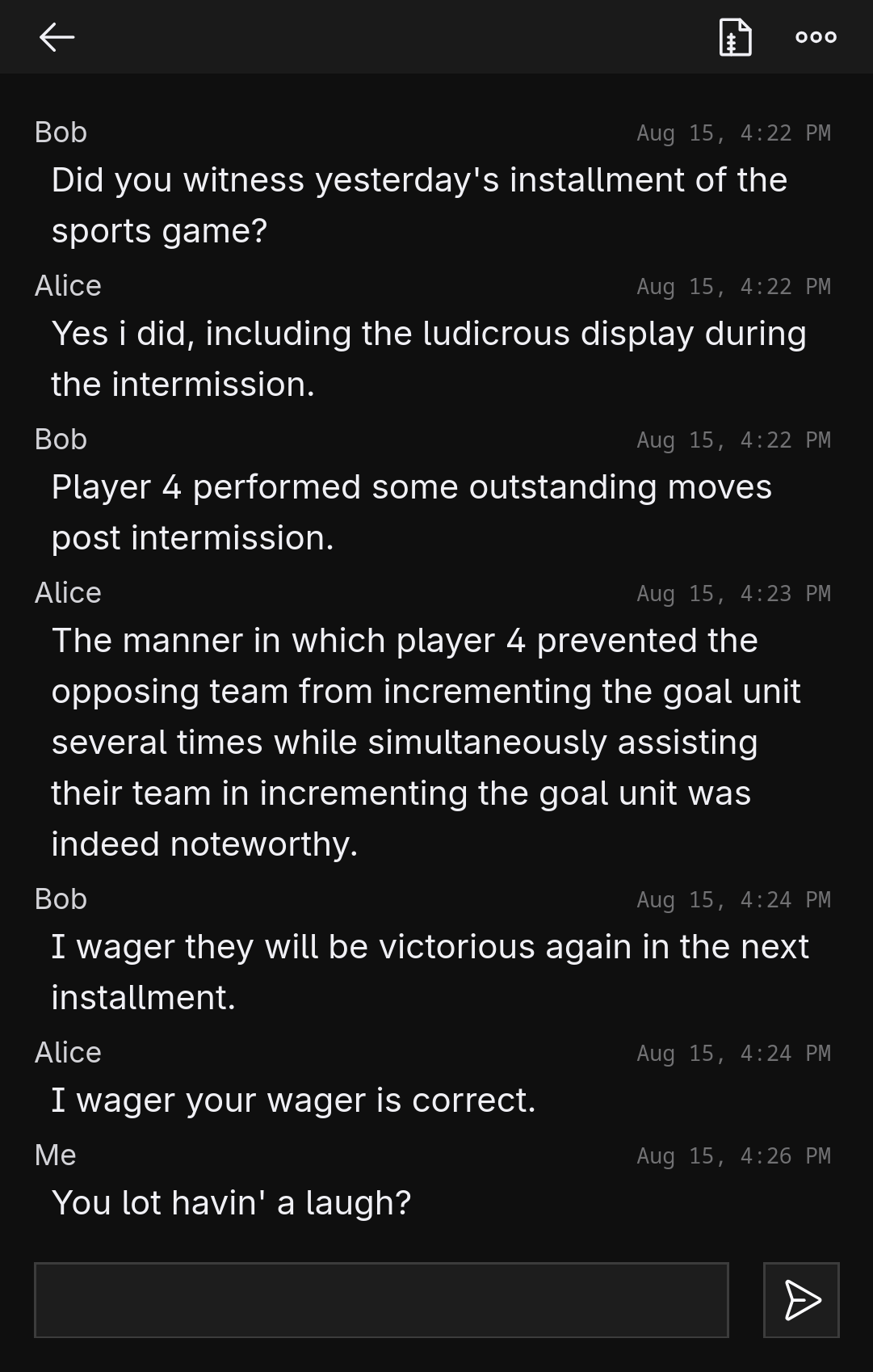Use cases
WireTile is suitable for:
-
Messaging individuals and small groups.
Peers exchange contact codes to begin messaging each other, which is analogous to exchanging phone numbers.
-
Transferring files.
Peer-to-peer communication allows efficiently transferring files of arbitrary size. Whereas centralized platforms must
often impose low limits such as 10 MB.
WireTile is not:
-
A distributed hash table or mesh network router.
Peers only communicate with their list of known peers. This list starts empty and new peers are manually added by the user
via exchanging contact codes. There is no peer discovery or relaying messages for other/unknown peers.
-
A community hub.
Large communities benefit from a hierarchy of roles/power, which is a poor fit for WireTile's peer-to-peer model. Instead
consider
Matrix for this use case.
-
Social media.
Operating Systems
WireTile consists of two major parts: a web app and a server (both are in the binary).
The web app requires a modern web browser, and is tested on Firefox and Chromium-based. Multiple modern web browsers are
available on all major operating systems.
The server requires Linux x64/arm64.
Encryption
All communication over the network is encrypted and verified using various cryptographic standards.
Server peer-to-peer communication utilizes: ED25519 to verify authenticity of peers, AES256-GCM to encrypt data payloads,
HMAC-SHA256 to verify integrity & authenticity of payloads, and ML-KEM1024 to establish shared secrets between peers.
Web app communication to/from the server is encrypted via HTTPS-TLS1.3.
How do i login/signup or create an account?
There are no login/signup buttons, instead each user runs their own self-hosted server and uses a web app served by their
server. Each server belongs to one user, so you could think of that as the "account".
DNS & domain names
WireTile is designed to operate without the Domain Name System (DNS). Owning a domain name is not required.
